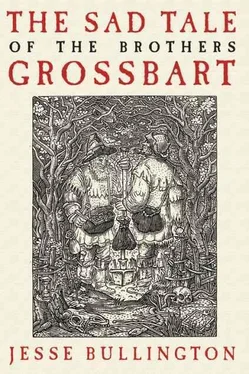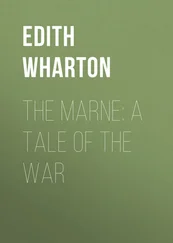“That ain’t no basalisk, that’s a damn cockatrice.”
“A what?!” Manfried laughed at his brother’s ignorance.
“A cockatrice. Basilisk’s just a lizard, cept it poisons wells and such,” said Hegel.
“That’s a scorpion! Although you’s half right-basilisk’ll kill you quick, but by turnin its eyes on you.”
“What!?” Hegel shook his head. “Now I know you’s makin up lies cause any man a learnin’ll tell you straight a scorpion ain’t no reptile, it’s a worm.”
“What worms you seen what have eyes and arms, huh?”
“Sides from you?”
The debate raged for some time, eventually deteriorating into a physical exchange. Hegel was happy to be alive and kicking his brother, and Manfried felt the same. When they took their shifts each thought of irrefutable points to make in the argument that qualified as such only in the loosest sense, considering they shared roughly the same opinion on this, as in most matters.
When all below fell silent below deck Al-Gassur lit a tallow in the storeroom. By its scant light he cut Barousse’s bonds, and in a moment the captain had wrested the knife away and pinned Al-Gassur to the floor. The Arab’s misery that his suspicions regarding Barousse’s intentions had been proven true became compounded by stark fear as Barousse began acting even stranger.
His face hovering above Al-Gassur’s, Barousse used the knife to slice open his own cheeks and brow, carving deep gashes that leaked blood into the Arab’s open mouth. Then the captain held the knife to the Arab’s throat and began licking Al-Gassur’s face, sucking on the ends of his mustache and prying open locked eyelids with a meaty tongue. Al-Gassur gasped when the salty appendage wriggled under and pressed against his eyeball, the jelly coming off on the rough tongue. Only the blade nicking his neck prevented the Arab from screaming; he was well aware that if he so much as coughed he would slit his own throat.
Suddenly as the bizarre and lascivious assault had begun it ended, and Barousse reared to his feet. Al-Gassur cowered, begging his brother to forgive whatever trespasses he had inadvertently committed. Instead Barousse wildly cut through his own clothing with such vigor that in moments he stood nude before Al-Gassur, his old wounds and fresh cuts gleaming black in the candlelight. One hand gripping the knife, he seized Al-Gassur’s hand with the other and yanked him upright. He hugged the Arab, who shivered at the wet embrace, his filthy clothes now glistening with fresh blood.
“In my travels I met a traveler,” Barousse whispered, releasing Al-Gassur and rushing to the scattered boxes. “I was a traveler, and he was a traveler, and for a short time we traveled together. Traveling. Travel, travel, the only life worth living. I had a wife, and two young boys but still I traveled, if you understand.”
“I under-”
“Traveling is best done with other travelers. The sea forces you among men, but not all are travelers at heart. The man, like me, was more than a man who travels because he can, but a traveler who travels because he must.”
“I too have traveled. I must confess-”
“He told me.” Barousse opened a box of jewelry and threw it against the wall, scattering a fortune along the floor. “I did not ask, just as you did not ask, but he told me, as I tell you.”
Al-Gassur remained silent, watching the captain ransack the other boxes until he found the one containing his clothes, the last chest Sir Jean had made to discharge before he slipped, banged his head, and realized the ship had also calmed. Barousse began chortling with laughter, tears and rivulets of blood pooling around his bare knees. Al-Gassur brought the tallow closer while Barousse began tossing fur-trimmed tunics and boots around the room.
“He knew I could not be fully happy, for I traveled despite my hard-fought wealth, my beloved family, my comfortable station. I think that is why, it must be why. Yet I wonder, often, often, especially after they died and I banished her, I wondered. You will fear the sea and her but more than that you will fear returning her, you will regret everything, as I regretted everything. Yet in the end, you will be as happy as I!” Barousse shook with laughter, his naked body matted with dried blood and waste.
“East is their home. You travel to where ships are known to have sunk, spits of stone far out to sea, desolate island cliffs, hidden reefs that rape ships bellies, you go alone. I left my ship and all my men, and rowed close to a desolate island farther east than I had ever gone, past Cyprus, to the very brink of the Holy Land. There must be no moon, not even a shaving, when the sea is lit only by stars and your fear, and there you wait with a sturdy net.”
The captain must have located his quarry, for he stopped rooting and leaned back, a thick black coat held in his shaking hand. He delicately ran the knife up and down it, prodding until the Arab heard a faint metallic jingle. Then the knife sank in and Barousse sank down, sliding his hand into the hole with the gentle air of a midwife assisting a small woman’s first child into the world. Al-Gassur’s candle reflected off something, and he peered over Barousse’s shoulder.
“If you search it out you can find cable thin as rope but far stronger. You noose it over the end, and drop it into the sea. Ensure it is a ship’s length long, to reach her depths. Then you wait, but not long. When you feel the tugging haul it up, slowly and gently as the first time you made love to your wife. You will hear the splashing beside your boat and then you must cast the net, and carefully, for one chance is all a man is allowed. Haul it on board quick, but do not look or all is lost! Above all, do not look until you have found a beach or rock where you can drag the net, and only then! And that, dear brother, is worth all sacrifices you have made and all tragedies you will suffer, the first sight of her! Only then will you return to your ship and the world of men, bringing what you have earned.”
Al-Gassur held out his trembling hands and took the artifact. The sides of the small bottle were twisted and warped, and rather than having a stopper the neck ended in a smooth glass circle. A strange object sat in the bottom, a lump wrapped in sealskin, and the awed Arab saw that it exceeded the neck of the bottle in size. Either the bottle had been blown around it, or it had somehow grown after being sealed inside. Most curious of all, the glass felt warm to the touch, and pressing it to his cheek, Al-Gassur thought it pulsed like the chest of a small animal.
“Always conceal it, from moon and sun and man alike. Here, with roof above and floor below and walls on all sides, here it is dangerous enough.” Barousse ripped a piece from the coat and covered the bottle in Al-Gassur’s palm. “Never let it see the open sky, even when you put it to use, keep it wrapped in cloth and let the sea strip it of its mantle. Now that you have seen it, never risk it again, never!”
“Brother, I will never have faith in any but you.” Al-Gassur bowed.
“I love to see the trembling of the tiny birds,” Barousse whispered in a strange accent, and before Al-Gassur could question his meaning warm liquid splashed the Arab’s face.
“I’ll see you rest with her, brother,” Al-Gassur vowed, the room tinted burgundy from the blood in his eyes. Barousse flopped forward, the knife buried to the hilt in his bare chest. A fevered smile contrasted with the horror in his foggy eyes, and his lips continued to move long into the night. And so Captain Alexius Barousse left the world of men and Grossbarts, leaving his legacy in the hands of those who still praised his name.
XXVI. The Children’s Crusade
In the days that followed Heinrich’s donning of the flagellant’s robes, the boys remained obediently silent but would abduct any solitary travelers from the road and bring them before their stepfather, who would lecture the near-catatonic victims before allowing the twins to eat. With each gobbled victim the demon raged and worried at Heinrich to spare the potential converts but still the man overpowered his fiend. Heinrich’s fever never slackened, imbuing his limbs with an unwholesome vigor instead of weakening him, and without even noticing he lapsed into cannibalism when Brennen offered him the pinkest parts of the unfortunates they seized. The demoniac could no longer bear the sun, making the twins dig him deep burrows when no caves or thickets could be located. Worry plagued Heinrich, who had never seen a map but whose belly compelled him southward.
Читать дальше












